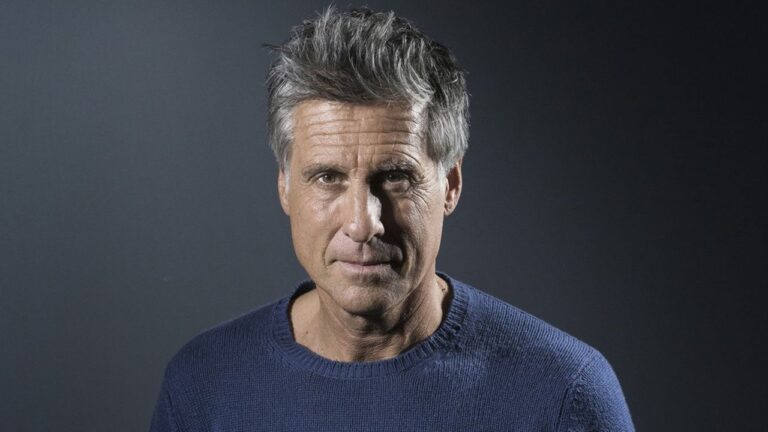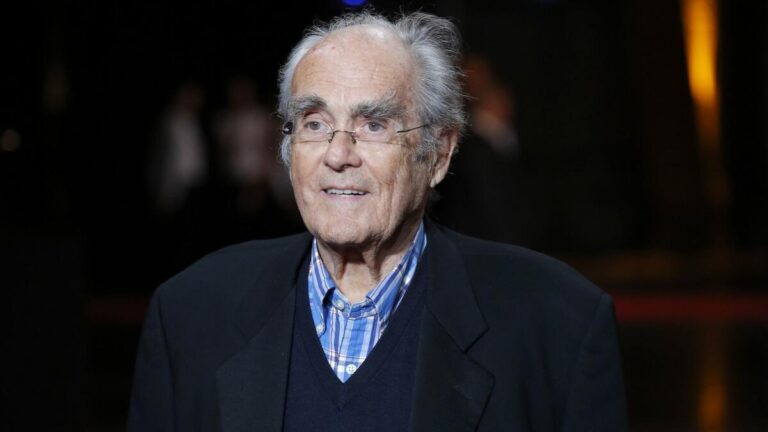Bruno Le Maire Fortune: A Look into His Wealth and Investments
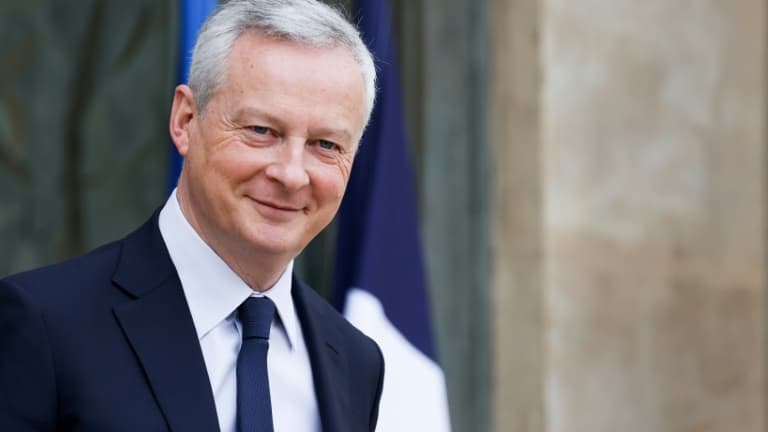
Bruno Le Maire, currently serving as France’s economy minister, has built a modest fortune over the years. His wealth, though not vast compared to other high-ranking politicians, reflects his prudent and conservative approach to personal finance. Known for his professionalism and integrity, Le Maire has been transparent about his assets, focusing more on tangible investments rather than speculative ones.
As a public figure, his personal finances are often scrutinized, but his wealth remains relatively modest when compared to other political elites. His role as a minister brings with it a steady income, but it is his real estate holdings and personal assets that contribute significantly to his fortune. Throughout his career, he has maintained a balanced lifestyle, avoiding controversial financial decisions, which has earned him respect as a politician who values fiscal responsibility.
Bruno Le Maire’s Estimated Net Worth
Bruno Le Maire’s net worth is estimated to be approximately 662,000 euros. This wealth is derived primarily from his real estate investments and personal assets such as artworks and luxury items. Though not a billionaire like some of his political counterparts, his wealth is substantial for a public servant and reflects his careful financial planning.

Unlike many politicians who diversify into stocks or high-risk investments, Le Maire’s wealth is tied to more stable, long-term assets, such as property and collectables. This is consistent with his conservative financial strategy, focusing on investments that will hold value over time. His wealth might seem modest compared to other influential political figures, but it is certainly above the average, highlighting his successful management of both his career and personal finances.
Sources of Bruno Le Maire’s Wealth
Bruno Le Maire’s wealth is rooted in real estate holdings and personal assets, making him a somewhat traditional investor. His primary sources of wealth include the ownership of several properties, notably a 310 m² house located in Pyrénées-Atlantiques. Additionally, he holds shares in a civil real estate company (SCI), which adds to his wealth.
He also has significant investments in luxury items, such as artworks and furniture, which contribute to his overall fortune. Unlike many of his peers, Le Maire does not invest in stocks or mutual funds, preferring more stable investments that can appreciate in value over time. This approach to wealth accumulation is in line with his personal values of financial stability and security, ensuring that his assets are protected against market volatility.
Real Estate Holdings
A significant portion of Bruno Le Maire’s wealth comes from his real estate investments. One of his most notable properties is a 310 m² house located in the Pyrénées-Atlantiques department of southern France. This property, combined with his other holdings, forms a substantial part of his financial portfolio. In addition to his personal home, Le Maire has investments in property through a civil real estate company (SCI), which provides him with passive income.
This stable real estate portfolio is the cornerstone of his wealth, offering a secure and appreciating asset base. Le Maire’s choice to focus on tangible assets such as real estate aligns with his preference for low-risk investments that retain value over time, ensuring that his wealth remains steady and secure.
Investments in Art and Collectibles
Beyond real estate, Bruno Le Maire’s wealth is also bolstered by his investments in luxury items and artworks. He owns a number of art pieces, including lithographs, which are a key part of his personal assets. These items not only contribute to his overall net worth but also reflect his refined taste and appreciation for culture.
In addition to artwork, Le Maire also owns luxury furniture and other high-end items that have the potential to appreciate in value over time. These investments are particularly notable because they differ from the more typical financial assets that politicians tend to accumulate, such as stocks or bonds. His art collections and luxury investments serve as both personal enjoyment and financial security, offering both cultural and monetary value.
Absence of Stock Market Investments
One of the most interesting aspects of Bruno Le Maire’s wealth is his lack of investments in the stock market. Unlike many politicians who invest in stocks, mutual funds, or other high-risk assets, Le Maire has avoided these types of investments. Instead, his financial strategy focuses on tangible assets that offer long-term security, such as real estate and artwork.
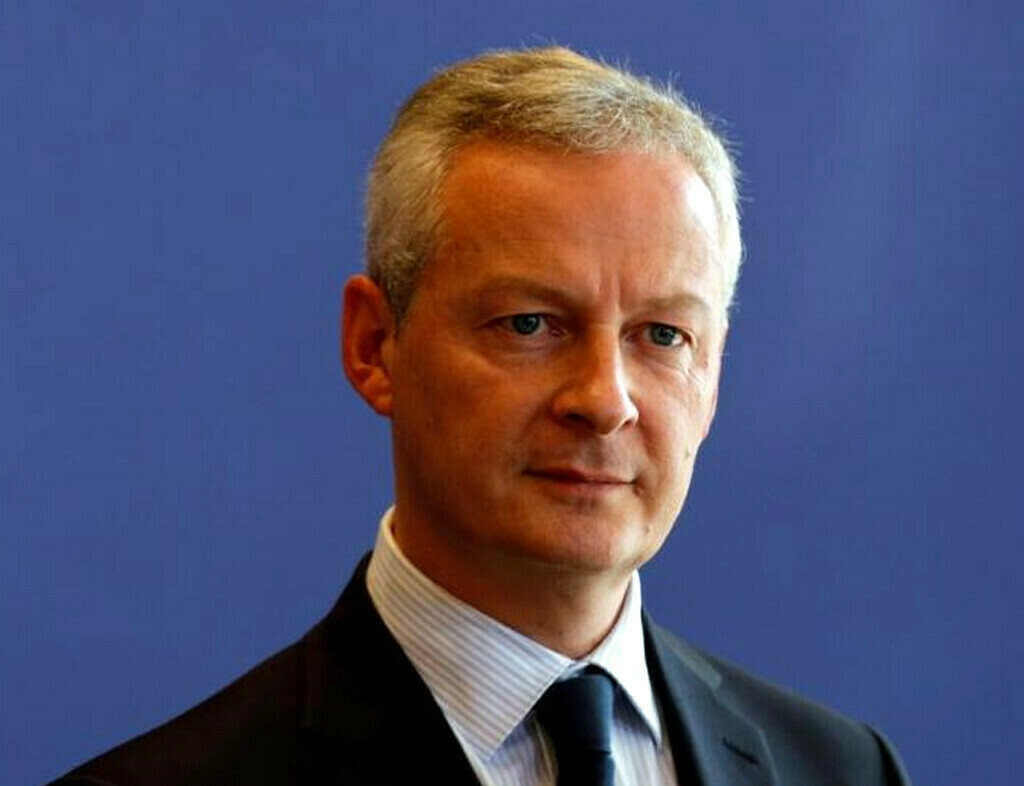
This approach ensures that his wealth is shielded from market volatility, which can often affect the value of financial assets. By staying clear of stocks and speculative investments, Le Maire is able to maintain a secure financial position, reflecting his cautious and conservative financial philosophy. This unique approach to managing his wealth makes him stand out from other public figures in the political arena.
Annual Income as a Minister
As the economy minister of France, Bruno Le Maire earns a salary of approximately 108,089 euros per year. This translates to a gross monthly income of around 9,000 euros. While this salary is significant, it is not extraordinary compared to other high-ranking French government officials.
However, it provides Le Maire with a steady income, which is complemented by his other sources of wealth. Despite his prominent political position, Le Maire has managed to keep his income and lifestyle relatively modest. His ministerial salary allows him to live comfortably but does not reflect the vast wealth of some of his counterparts in government. This balance between a modest salary and substantial personal wealth aligns with his image as a pragmatic public servant.
Comparison with Other French Politicians
When compared to other prominent French politicians, Bruno Le Maire’s wealth is relatively modest. For instance, politicians like Gabriel Attal and Gérald Darmanin have similar fortunes, while others, like Franck Riester, possess significantly larger fortunes. Le Maire’s wealth is derived primarily from real estate investments and personal assets rather than speculative ventures or large-scale business dealings.
His approach to financial management sets him apart from those who rely more heavily on the stock market or high-risk investments. While his wealth is significant for a public servant, it pales in comparison to other wealthier French politicians, particularly those who have diversified their investments more extensively. However, Le Maire’s wealth remains in line with his personal values of financial stability and careful planning.
Role of Family in Bruno Le Maire’s Financial Standing
Bruno Le Maire’s financial standing has likely been influenced by his family’s background, although there is little public information to suggest significant family wealth or inheritance. Le Maire comes from a middle-class family, and his personal wealth is primarily attributed to his own hard work and career in politics.
His father, who was a prominent civil servant and education official, did not appear to have a large fortune, indicating that Le Maire’s wealth is largely self-made. The family wealth, if any, has not been a major influence on his financial standing. Instead, it is his prudent approach to investments and public service that has shaped his financial portfolio. While some public figures inherit considerable wealth, Le Maire’s financial strategy reflects independence, with his fortune being a product of careful personal investments in real estate and luxury items.
Public Perception of Bruno Le Maire’s Wealth
The public’s perception of Bruno Le Maire’s wealth is shaped by his role as a public servant and his relatively modest financial status for someone in his position. As France’s economy minister, he is expected to manage public funds responsibly, and his wealth is scrutinized in this light. While his fortune of 662,000 euros is not extraordinary compared to other politicians, it is still substantial for a public servant.
The public views him as financially cautious, and his decision to focus on real estate and art investments rather than stocks or speculative assets resonates with his image of pragmatic financial management. Despite the scrutiny, his wealth is seen as a product of personal choices and hard work, rather than inheritance or high-risk investments, which adds to his credibility as a responsible politician.
Bruno Le Maire’s Social Media
| Platform | Followers | Link |
| 165,000 | @BrunoLeMaire | |
| 45,000 | @BrunoLeMaire | |
| 25,000 | Bruno Le Maire Official |
Criticism and Praise of Bruno Le Maire’s Wealth
Bruno Le Maire’s wealth has sparked both criticism and praise. Critics argue that, as a high-ranking government official, his financial standing may undermine his credibility, particularly in times of economic austerity. Some view his luxury items and real estate holdings as symbols of inequality, questioning whether a public servant should enjoy such wealth.
On the other hand, supporters praise Le Maire for his modest approach to wealth, noting that he avoids flashy displays of fortune and prioritizes financial security. His cautious financial management is viewed as a reflection of his prudence in public office. The public’s reaction is mixed, with some believing that his wealth is earned through wise investments, while others feel that a politician’s financial situation should be more modest, given the economic challenges many citizens face.
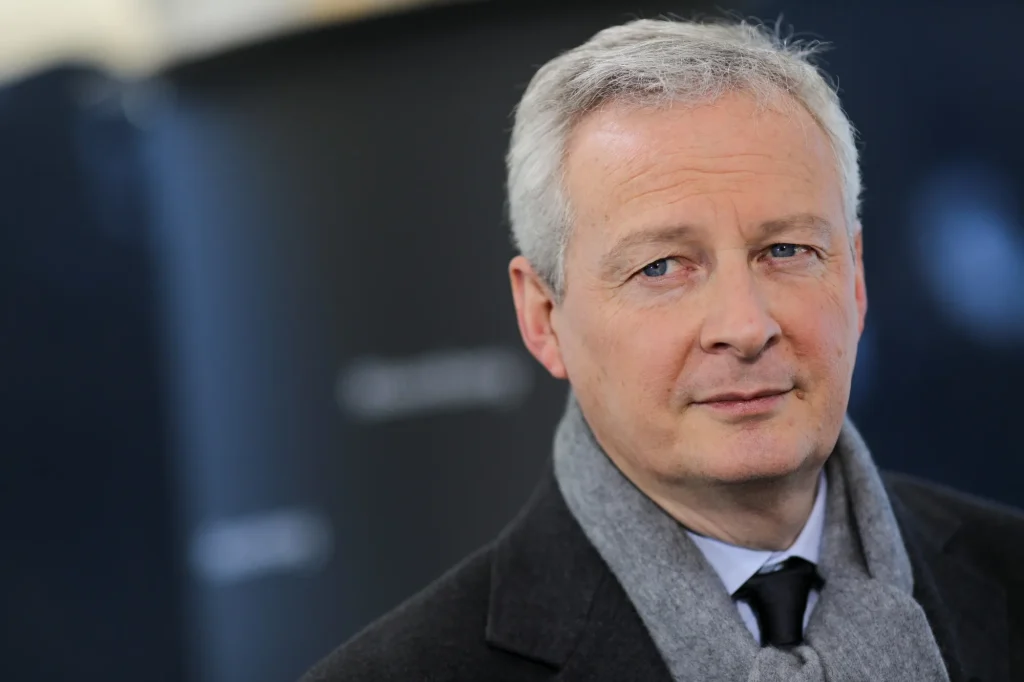
Frequently Asked Questions About Bruno Le Maire’s Fortune
1. What is Bruno Le Maire’s net worth?
Bruno Le Maire’s estimated net worth is around 662,000 euros, primarily coming from real estate and art investments.
2. How does Bruno Le Maire earn his income?
Le Maire earns a salary of approximately 108,089 euros annually as France’s economy minister, alongside his wealth from personal assets.
3. Does Bruno Le Maire have any investments in the stock market?
No, Le Maire does not invest in stocks or mutual funds, preferring real estate and art as more secure investments.
4. What type of properties does Bruno Le Maire own?
Bruno Le Maire owns a 310 m² house in Pyrénées-Atlantiques, and he has additional real estate holdings through a civil real estate company (SCI).
5. How much is Bruno Le Maire’s annual salary?
His annual salary as economy minister is approximately 108,089 euros, or about 9,000 euros per month.
6. Does Bruno Le Maire come from a wealthy family?
Le Maire comes from a middle-class family, and his wealth is self-made, built through his career and prudent investments.
7. What do people think of Bruno Le Maire’s wealth?
Public opinion is mixed. Some criticize his wealth as excessive for a public servant, while others praise his prudent financial management and modest lifestyle.
Conclusion on Bruno Le Maire Fortune
Bruno Le Maire’s fortune is modest for a high-ranking government official. With an estimated wealth of 662,000 euros, he remains financially conservative, avoiding high-risk investments and focusing on real estate and luxury items. His salary as economy minister contributes to his steady income, but it is his personal investments that have secured his wealth.
While his wealth has generated both criticism and praise, Le Maire’s financial management is seen as careful and responsible. He remains a respected figure in the political arena, and his wealth is a reflection of prudent decisions rather than excess or extravagance. His wealth is a personal achievement, built through careful planning and wise investments, rather than relying on inheritance or speculative ventures.





